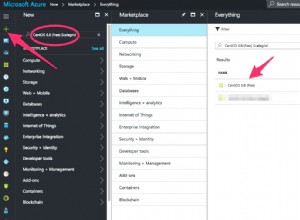Aqui está um serializador de amostra para System.Type que serializa o nome do Type como uma string BSON. Isso tem algumas limitações, pois o método Deserialize falha se o nome do tipo não for um tipo de sistema ou no mesmo assembly, mas você pode ajustar esse serializador de exemplo para gravar o AssemblyQualifiedName.
public class TypeSerializer : IBsonSerializer
{
public object Deserialize(BsonReader reader, Type nominalType, IBsonSerializationOptions options)
{
var actualType = nominalType;
return Deserialize(reader, nominalType, actualType, options);
}
public object Deserialize(BsonReader reader, Type nominalType, Type actualType, IBsonSerializationOptions options)
{
if (reader.CurrentBsonType == BsonType.Null)
{
return null;
}
else
{
var fullName = reader.ReadString();
return Type.GetType(fullName);
}
}
public bool GetDocumentId(object document, out object id, out Type idNominalType, out IIdGenerator idGenerator)
{
throw new InvalidOperationException();
}
public void Serialize(BsonWriter writer, Type nominalType, object value, IBsonSerializationOptions options)
{
if (value == null)
{
writer.WriteNull();
}
else
{
writer.WriteString(((Type)value).FullName);
}
}
public void SetDocumentId(object document, object id)
{
throw new InvalidOperationException();
}
}
O truque é registrá-lo corretamente. Você precisa registrá-lo para System.Type e System.RuntimeType, mas System.RuntimeType não é público, então você não pode se referir a ele em seu código. Mas você pode fazer isso usando Type.GetType. Aqui está o código para registrar o serializador:
var typeSerializer = new TypeSerializer();
BsonSerializer.RegisterSerializer(typeof(Type), typeSerializer);
BsonSerializer.RegisterSerializer(Type.GetType("System.RuntimeType"), typeSerializer);
Eu usei este loop de teste para verificar se funcionou:
var types = new Type[] { typeof(int), typeof(string), typeof(Guid), typeof(C) };
foreach (var type in types)
{
var json = type.ToJson();
Console.WriteLine(json);
var rehydratedType = BsonSerializer.Deserialize<Type>(json);
Console.WriteLine("{0} -> {1}", type.FullName, rehydratedType.FullName);
}
onde C é apenas uma classe vazia:
public static class C
{
}




